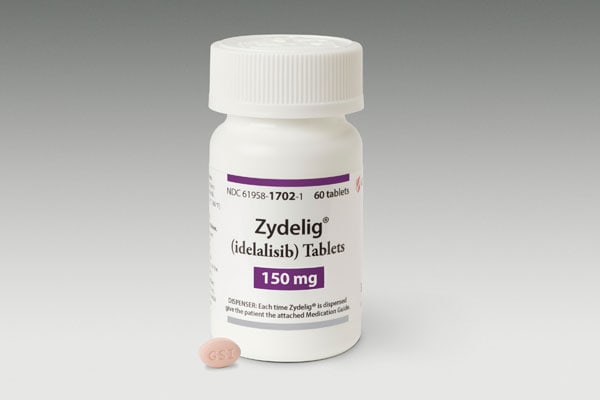Novartis has bucked a recent disappointing trend among PI3K inhibitors, scoring a win in advanced breast cancer with its alpelisib candidate in breast cancer.
The results of the SOLAR-1 trial showed that giving alpelisib (BYL719) alongside AstraZeneca’s venerable product Faslodex (fulvestrant) improved progression-free survival (PFS) in patients with hormone receptor-positive/HER2-negative advanced breast cancer whose tumours carry PIK3CA mutations.
Novartis revealed the study was positive in August, but reported the numbers for the first time at ESMO, and they look pretty good; the combination almost doubled PFS from 5.7 months for patients receiving Faslodex alone to 11 months, cutting the risk of death or disease progression by 35%, and more than doubled the overall response rate (ORR) to 36% from 16%.
Alpelisib was also fairly well tolerated in the 572-patient study, which involved patients whose disease had progressed after earlier treatment with an aromatase inhibitor with or without a CDK4/6 inhibitor, a newer drug group which includes Novartis’ own Kisqali (ribociclib), Pfizer’s Ibrance (palbociclib) and Eli Lilly’s Verzenio (abemaciclib). The most common side effects were elevated blood sugar, rash and diarrhoea but tended to be manageable.
The size of the PFS benefit and tolerability profile is a big improvement on Roche’s PI3K inhibitor taselisib, which only extended PFS modestly (from 5.4 to 7.4 months) in the SANDPIPER study and was associated with a serious side effect burden.
Analysts at Jefferies now think the drug could become a $1.5bn blockbuster, as it is the first drug in the class whose benefits outweigh its toxicities in breast cancer – something Novartis thinks could be down to its high specificity for the PI3K alpha receptor. Around 40% of HR+ advanced breast cancer patients have PIK3CA mutations involving the alpha isoform.

Zydelig is among the existing PI3K inhibitors on the market
Three PI3K inhibitors have been approved for blood cancers – namely Gilead Sciences’ Zydelig (idelalisib), Bayer’s Aliqopa (copanlisib) and most recently Verastem Oncology’s Copiktra (duvelisib) – but developing them for solid tumours has proved a challenge. The new data puts Novartis in pole position to succeed where others have failed.
Roche scrapped taselisib for breast cancer after reporting the SANDPIPER results at ASCO, but said it is still interested in pursuing the PI3K mechanism with other compounds. Meanwhile, Novartis handed off rights to another candidate – called buparlisib – which was also troubled by toxicity issues in the BELLE-3 breast cancer study.
“Alpelisib is the first drug to show a benefit in a genomic subgroup of breast cancer patients,” said lead investigator Fabrice André of the Institut Gustave Roussy, at ESMO, although he cautioned that “the follow-up is short so we cannot say whether there is a long-term survival benefit.”
“We have had HER2-targeted drugs – targeting the HER2 protein – but, until now, the use of tumour genomics has not really entered the practical care of breast cancer, unlike melanoma or lung cancer.”
That raises some challenges, as genomic testing of breast cancer patient samples for PI3KCA mutations will be needed, something that is not currently undertaken.




